Women in Engineering Day 2024
Meet Sarah Backhouse, Head of Product at Jadu.
International Women in Engineering (INWED) is here (23rd of June 2024). The day was created by Women’s Engineering Society (WES) and will celebrate its 11th year this year!
This year the theme is #EnhancedByEngineering, which aims to highlight the important work that women engineers are doing to support lives and livelihoods every day through engineering (source INWED).
INWED gives women engineers around the world a profile when they are still hugely under-represented. According to recent HESA data, 31% of core science, technology, engineering, and mathematics (STEM) students in Higher Education in the UK are women or non-binary, yet latest figures indicate only 16.5% of engineers in the UK are women (source INWED). While there has been a gradual increase in the number of STEM professionals per year in engineering, the overall percentage has only risen from 8% in 2016 to 12% in 2022/23, meaning at the current rate of change, we wouldn’t see equal representation in STEM until 2070 (source STEM women).
There is still a way to go, therefore, to see a more diverse engineering workforce, and Jadu is passionate about supporting, raising awareness and promoting diversity in STEM to encourage more women into engineering roles.
For International Women in Engineering Day 2024, we interviewed Sarah Backhouse, Head of Product at Jadu. We asked Sarah to share her experience working in technology roles, her insight on the challenges and opportunities for women in engineering, and her advice for aspiring female engineers.
Tell us about your role at Jadu?
As the Head of Product at Jadu, I’ve been with the company for many years, working my way through various technical roles in our UX, Web Dev, and Engineering teams. Before stepping into my current role, I also served as a Scrum Master and Product Owner, working within the Scrum Agile framework. My day-to-day work is pretty diverse - I handle both strategic and business sides of how we develop our products and make sure to stay connected with customers and stakeholders to ensure our products meet their needs.
Have you faced any challenges within your engineering career that you’d be happy to share?
When I first started at Jadu, which was a start up at the time in 2005, I was the only female employee within a team of 6, and for a while I was the only female technical employee. It can be a challenge going into an environment where your face doesn’t fit so to speak. As we’ve grown, more women have joined and that's not the case anymore. Our teams are much more diverse with 41% of Jadu’s team being women.
Are there any women role models or mentors who have influenced your career?
Not really, I don’t think of myself as a woman employee, just an employee. I’m not sure if that's an advantage or a disadvantage, but it does mean that I don’t think of my career in terms of being a woman in STEM or seeking specifically for women mentors.
What made you choose engineering as your career path?
I enjoy tweaking and fiddling and understanding how things click together. It wasn’t exactly my career plan - more finding things that I find interesting and pursuing that.
What advice would you give to yourself if you could talk to the ‘you’ starting out in engineering now?
I’d say something about imposter syndrome…and having more confidence in your ability.
Irini Koutaki, Software Engineer at Jadu added to Sarah’s answer, “don’t blame yourself and believe you have impostor syndrome, it’s the bias and doubt in the look of most people that makes you feel this way. Don’t try to prove your worth. Do your best at your job and in the world, by acting as you expect others to act.”
How do you think the engineering sector can improve when it comes to diversity and inclusion, especially in technical roles?
I think there can be a “build it, and they will come” approach to changing to embrace diversity and inclusion. I’m not sure that always yields the change you want.
I think there’s sometimes a fear that changing biases in a team means having to lower the bar, which isn’t the case. But it probably does mean proactively approaching candidates and asking them to apply to ensure that you have equal representation throughout your recruitment pipeline.
In your experience, what are some of the barriers that women face in engineering, and what steps do you think could be taken to overcome them?
Technology has historically been male dominated, I think that probably reflects in unconscious biases when it comes to women in engineering. I’m not sure how we remove that barrier in the short term, but hopefully greater representation will change that in the future.
We can work to reduce the effect of unconscious bias by incorporating practices such as blind recruitment into our hiring processes. Blind recruitment is a process where identifying attributes are removed from CVs and job applications to ensure decisions are based solely on qualifications and experience. This method helps to reduce unconscious bias, making the hiring process fairer and more inclusive.
Care responsibilities still skew towards mothers, so flexible and home working such that you can do the school run, etc helps to remove common barriers too. It's hard to juggle full time work with caring for a child, and anything that helps with that is appreciated!
Get in touch
We have several engineering roles available at Jadu, we’d love for you to apply! We also sponsor Women in Tech in Birmingham, in case you’re interested in attending, which is a regular meet up (usually every month) to support, empower, and promote women in the tech industry.



Leave a comment